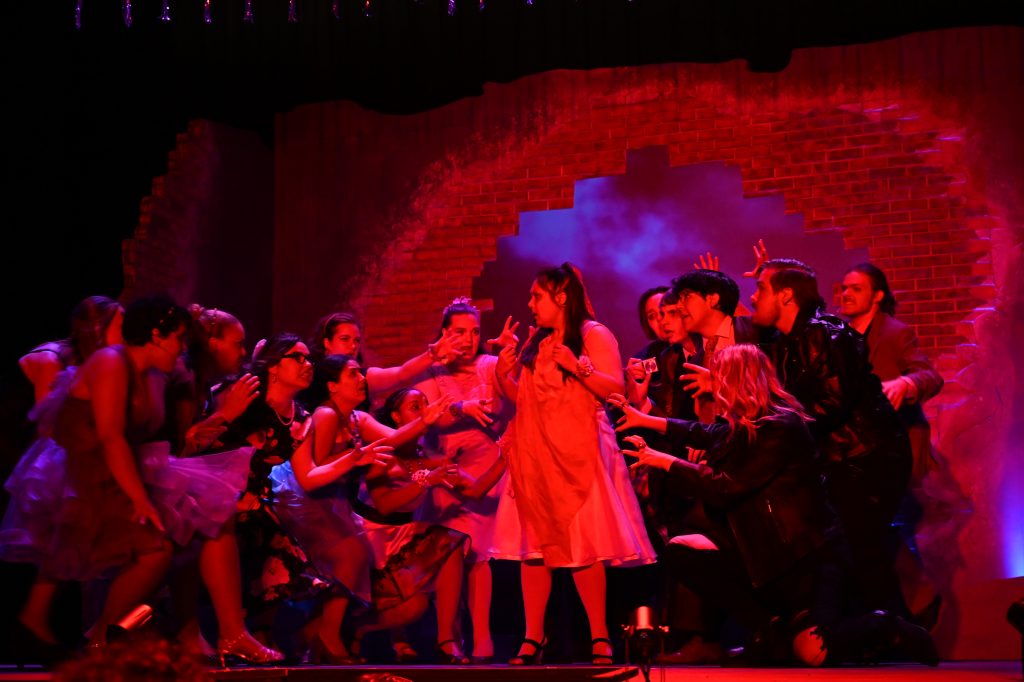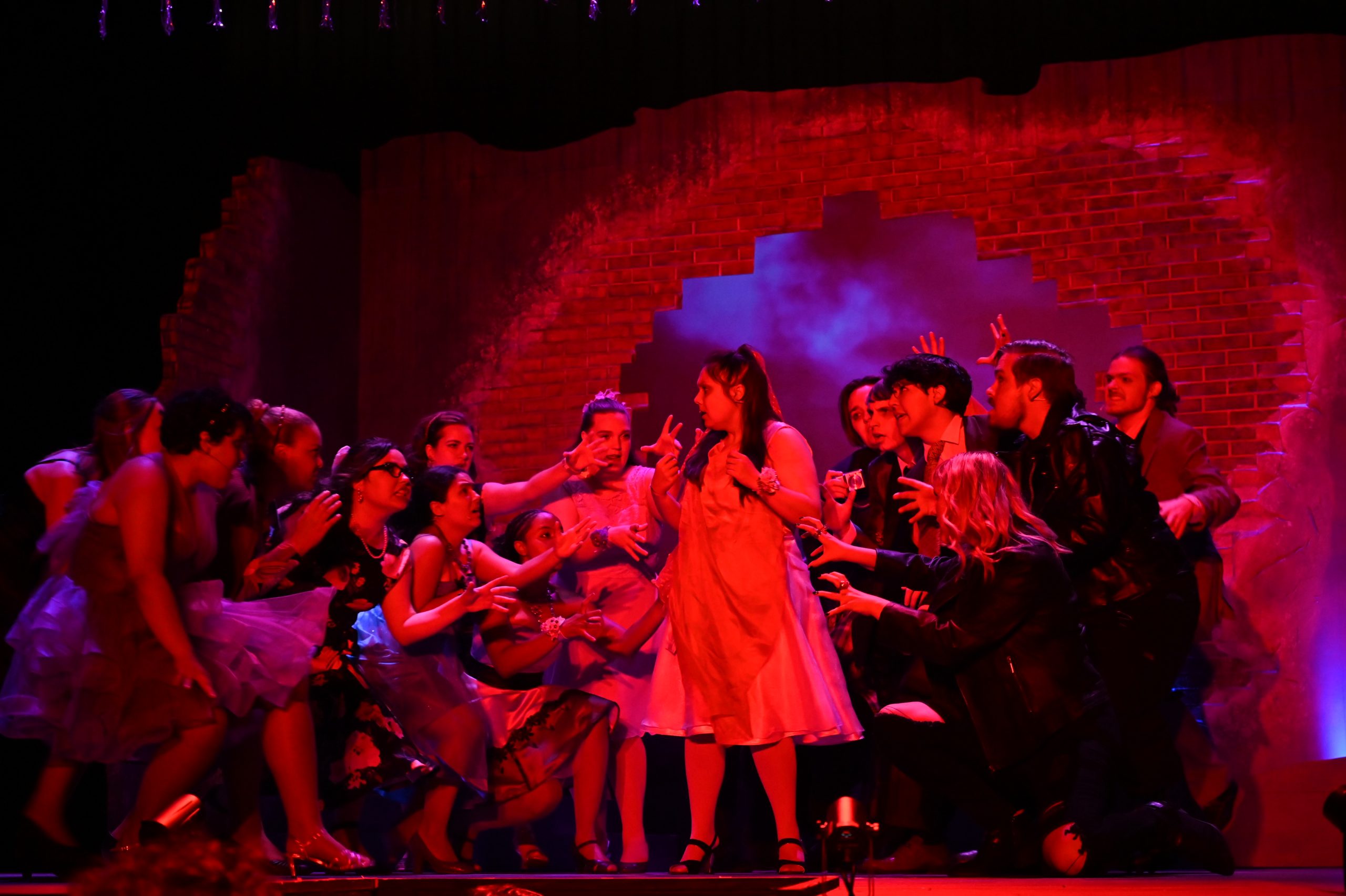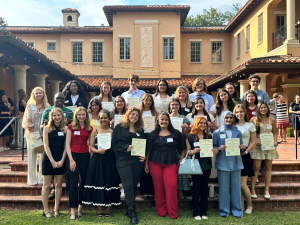
A chorus of terror rings out as students pool together, their feet frozen to the gymnasium floor, suffocated by a wave of bloodied darkness. Bang. Bang. Bang. The doors lock around them. “Please,” Chris pleads, muscles tensed. Among the commotion, a woman, soaked in red, crowned in silence, looks forward. She looks past the screaming faces, she looks past the frantic praying—and for the first time in her life, no one looks past her. After tonight, the students of Rollins College will know her name: Carrie White.
Based on the 1974 horror novel by Stephen King, the 1988 musical adaptation “Carrie: The Musical” quickly gained notoriety as one of the largest and most expensive flops in Broadway history. After only 16 previews, five shows, and spending $8 million, the show was closed. Still, the story refuses to die. In 2012, a newly revised off-Broadway performance revived the legacy of Carrie White, focusing less on the spectacle and more on the emotional complexity of the characters.
The musical, told through the memories and interrogation of Sue Snell, follows Carrie White—a shy girl in high school tormented by bullies and trapped within the confines of her religious extremist mother. As Carrie discovers a secret telekinetic power within herself, she is forced on a journey of identity, isolation, empowerment, and womanhood.
“I would bet almost everything that everyone in the audience has known someone like Carrie,” said Jessie Hoffman (’25), the lead actress with the titular role. “If we just showed more empathy and kindness to one another in a way like how Carrie should have been treated rather than judging without knowing what’s going on in their personal lives, we could have power to change someone’s life.”
A line in the epilogue echoes Hoffman’s sentiment: “I could say thank God that’s not me, but what does it cost to be kind?” As the entire cast stands before the audience, this line stands out among the rest. “I think kindness is a huge message in this story,” said Stephanie Dezelin (’27), the actress playing Margaret White (Carrie’s mother). “I love thinking about the mentality of ‘thank God that’s not me’ and the afterthought of ‘oh my God, what if it that was me?’ and about what I would do. I think it offers something to think about: If you could do something to change someone’s life, would you do it?”
Dezelin’s portrayal of Margaret White leans into her complexity. “In this version, she’s almost more sympathetic,” she said. “She wants the best for her daughter, but her way of getting there is so warped. She thinks she’s doing a favor for Carrie. She’s so hellbent—ironic—on preventing her daughter from going to hell. I want the audience to know how messed [up] she is as a human being but to also know the complexity of her care. In this [show], Margaret is apologetic.”
As the house lights begin to glow, and the blood-soaked finale burns away its horrors, “Carrie: The Musical” becomes a deeper tragedy—one born from neglect, isolation, and fear. With every note and regret-stained face, the show reminds its audience that the horrors on stage aren’t rooted in telekinesis or possession but in something far more human.
The Rollins College production of “Carrie: The Musical” opened on Thu., April 24 and ran through Sun., April 27.


















Comments are closed.